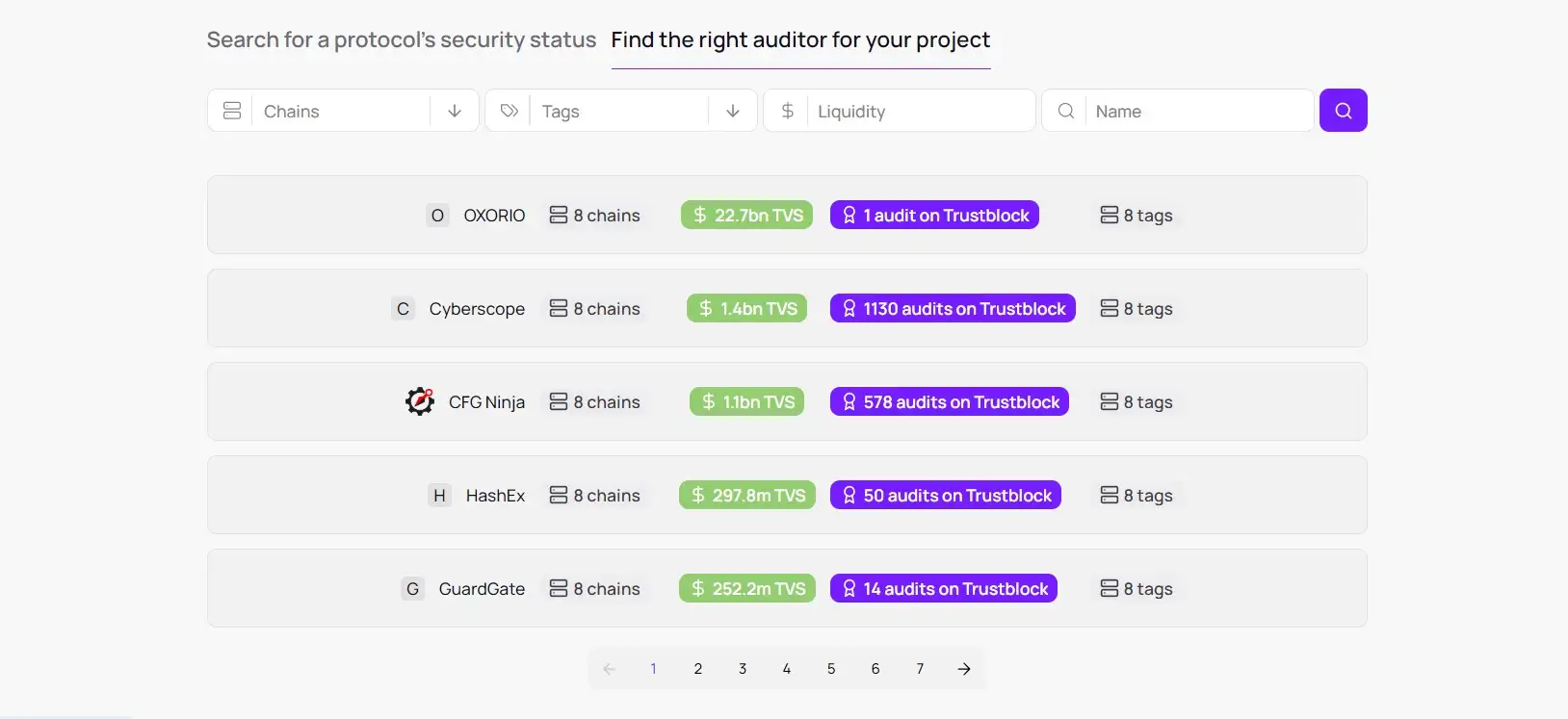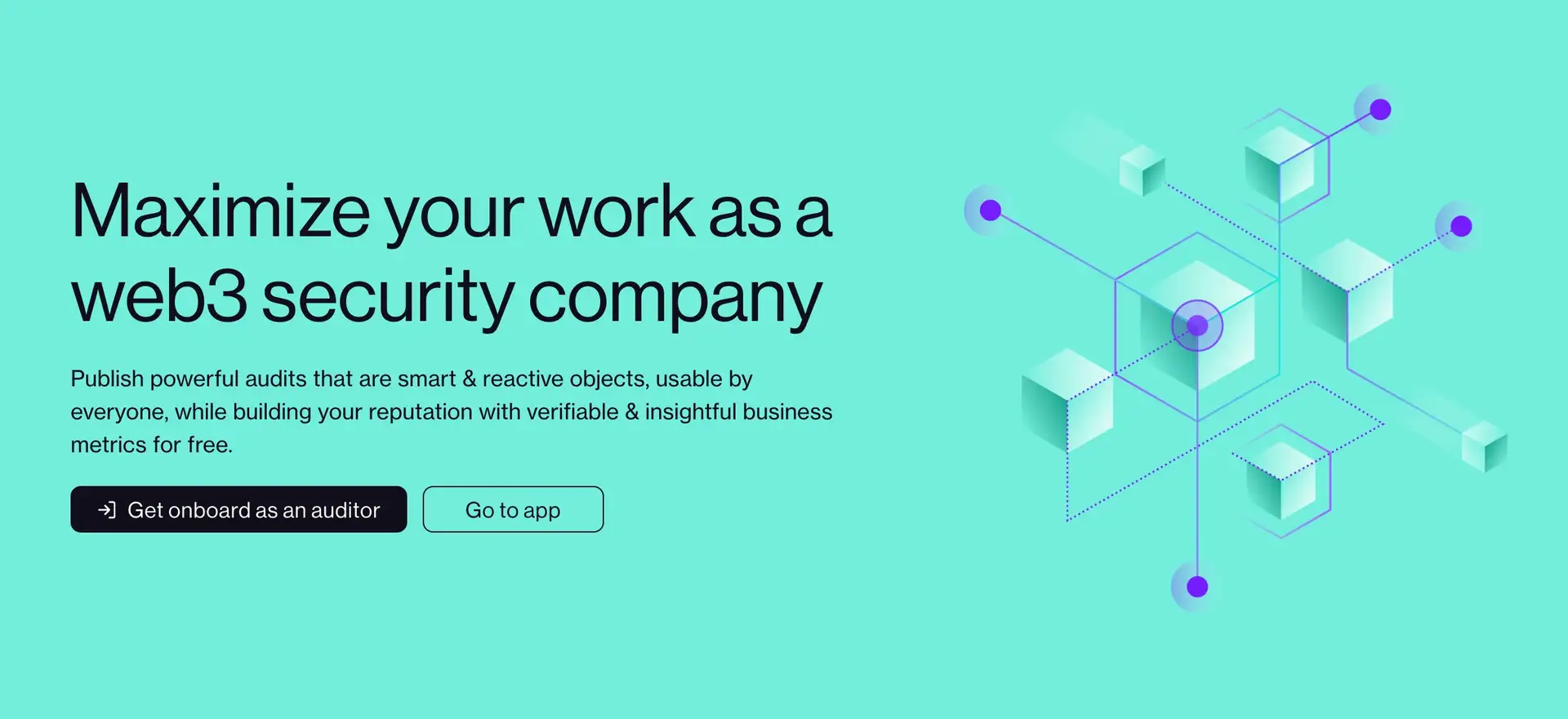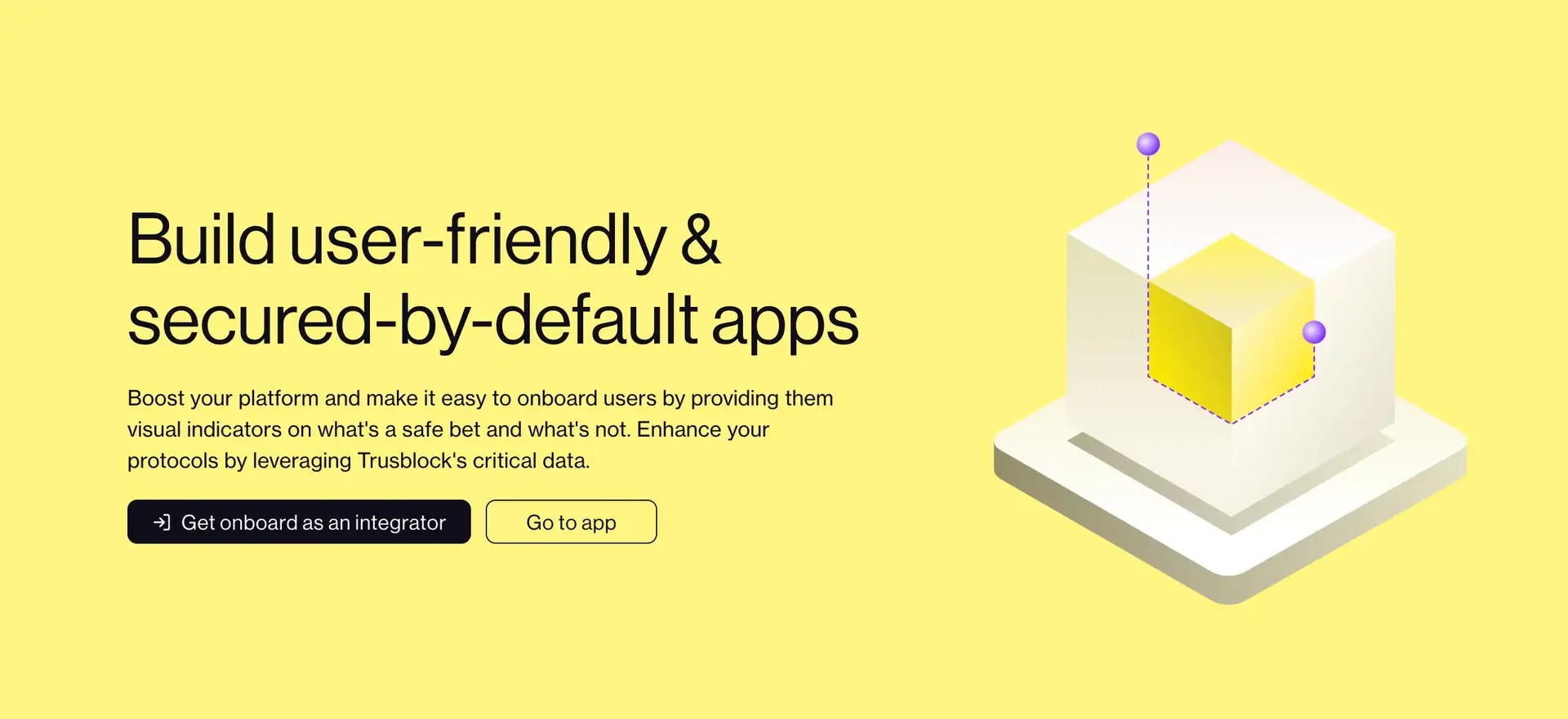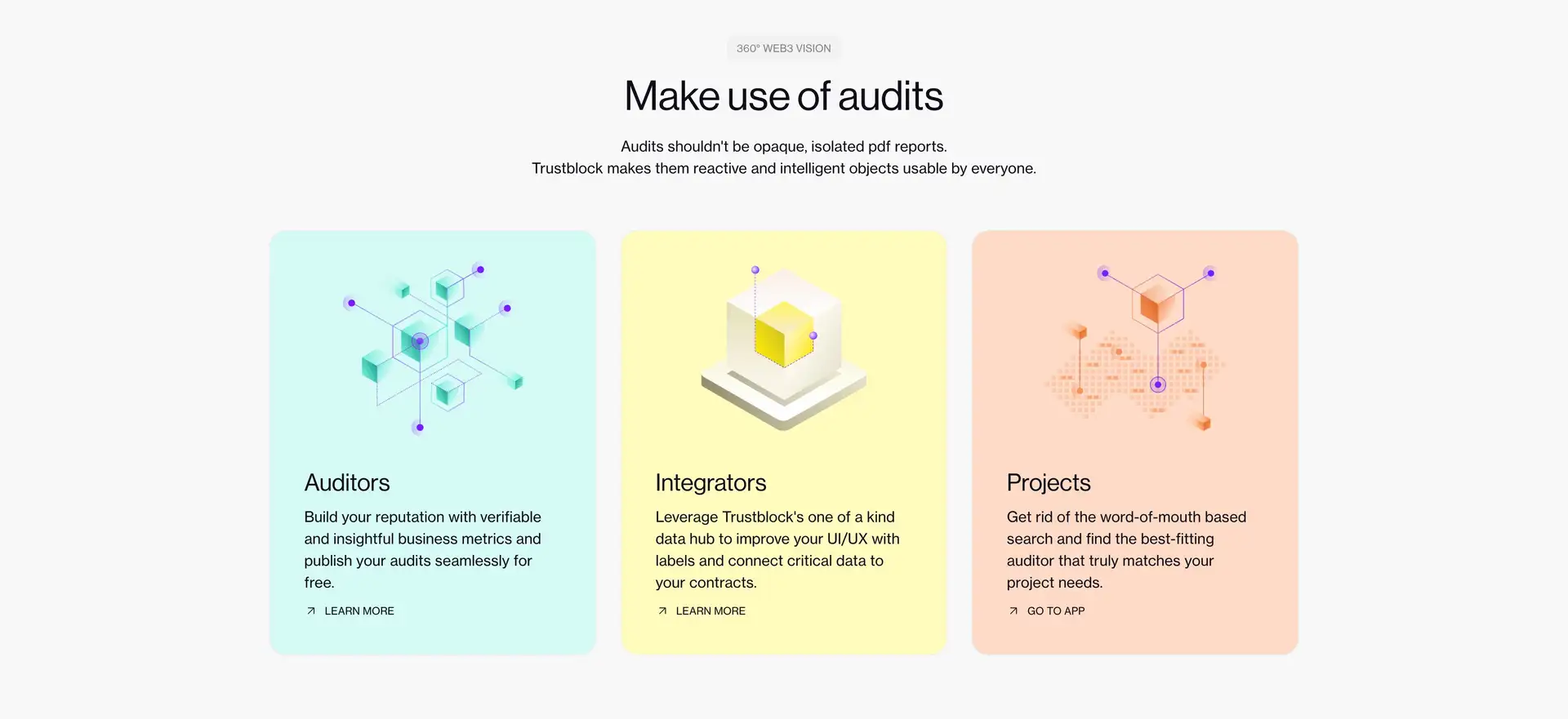About Trustblock
TrustBlock is a cutting-edge platform dedicated to enhancing transparency and security in the Web3 ecosystem. It operates as an on-chain hub where auditors can share their audits in a verifiable manner. By linking audits to the smart contracts they cover, TrustBlock ensures that both the authenticity of the audits and the credibility of auditors are maintained, protecting users from scams and impersonators. This unique approach to audit transparency positions TrustBlock as a crucial tool for decentralized projects, promoting security and trust across the blockchain space.
The platform's strength lies in its ability to provide real-time, actionable insights into security data, which can be leveraged by various Web3 stakeholders. Projects using TrustBlock can display trust signals, such as security labels, on their user interfaces, increasing user confidence. Furthermore, the composability of TrustBlock’s audit data allows developers to integrate it directly into smart contracts, thereby fortifying their security and functionality. This multifaceted approach fosters a more secure, trustworthy environment for decentralized finance (DeFi) and other blockchain applications.
The vision behind TrustBlock is deeply rooted in creating a trust-based and secure Web3 ecosystem. The platform was developed with the belief that audits should not just be static, isolated reports but dynamic, intelligent assets that can serve as the foundation for decentralized applications. By enabling transparent audits, TrustBlock aims to protect users and developers alike from vulnerabilities and malicious actors. The project envisions a Web3 world where security is embedded at the core of every smart contract and decentralized platform.
Another critical aspect of the TrustBlock vision is accessibility. Traditionally, security audits in the blockchain world have been complex and opaque, often locked behind paywalls or difficult-to-interpret reports. TrustBlock disrupts this model by making security audits open and verifiable by anyone in the community. This commitment to openness is key to fostering widespread adoption of decentralized technologies by building user trust and ensuring that security becomes a fundamental feature of blockchain innovation.
Inspired by the potential of blockchain technology to create a more equitable digital landscape, TrustBlock aims to empower auditors and developers alike. Auditors can build their reputation through the TrustBlock platform by sharing their work with transparency and precision. Developers, on the other hand, can confidently integrate these audits into their projects, knowing that they are backed by solid, verifiable data. This symbiotic relationship between security providers and projects is at the heart of TrustBlock's vision for a secure and scalable future for Web3.
TrustBlock has made significant progress since its inception. The platform has already secured over $26 billion in total value through more than 2,300 audits, with contributions from a network of 45 auditors. The development of TrustBlock has focused heavily on improving the user experience for both auditors and developers, streamlining the audit publication process, and providing real-time security insights.
Key milestones in TrustBlock’s development include the launch of multiple beta versions that refined the platform's core functionality, such as audit publication and integration tools for developers. Features like the labels widget and security data API have been introduced to enhance user experience and security composability. These milestones demonstrate the platform’s commitment to ongoing improvement and innovation in the Web3 security landscape.
The TrustBlock team is led by seasoned experts in blockchain technology and security. The company was founded by Yosi Megrel, who serves as the CEO. With over a decade of experience in leading fintech companies, Yosi is a recognized pioneer in the crypto space. Other key team members include Omri Ezer, the Product Manager, who brings extensive expertise from the jewelry industry, and Elad Kalich, the COO, who has a background in visual media and product design. Together, this team drives TrustBlock's mission to create a secure and transparent Web3 ecosystem.
TrustBlock is backed by prominent partners and venture capitalists, including Fabric Ventures, Frst VC, and LCF. These investors play a crucial role in supporting TrustBlock’s mission to transform how audits are conducted and shared in the decentralized world.
TrustBlock is actively engaging users through its ongoing beta program, which has seen several iterations since its launch. Starting from version 0.1.0, each new release has introduced critical improvements to the platform. In the latest beta version, the audit provider's profile has been enhanced with new metrics to make audits more insightful and accessible. The platform also supports early access to security data for integrators, enabling projects to leverage audit information in real time.
For those interested in participating, TrustBlock offers an open invitation for Web3 developers and auditors to join its beta program, enabling them to contribute to the platform’s growth while gaining access to advanced security tools. You can explore more about the ongoing beta and sign up for early access on their official documentation site.
Trustblock Suggestions by Real Users
Trustblock FAQ
TrustBlock audits are stored on-chain and linked to smart contracts, ensuring transparency and immutability. Unlike traditional PDFs, audits on TrustBlock are dynamic, verifiable, and usable by decentralized applications in real-time.
By integrating security labels from TrustBlock, projects can visibly show users that their smart contracts have been audited, increasing trust and user retention in the Web3 ecosystem.
TrustBlock ties audits directly to the smart contracts they cover, ensuring that users can verify the authenticity of the audit and its author, preventing impersonation and scams.
TrustBlock allows verified auditors to publish audits on-chain. Each audit is tied to the auditor's wallet, providing credibility. Auditors can build their reputation through the platform.
Developers can leverage TrustBlock's security data API to integrate real-time audit information into their smart contracts and user interfaces.
You Might Also Like













